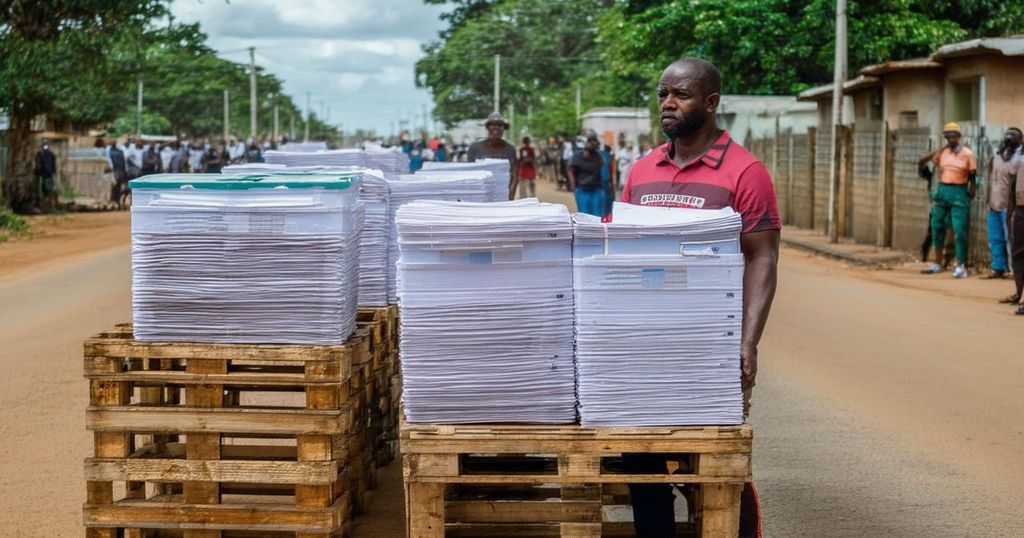Mozambique Ruling Party Declares Election Victory Amid Allegations of Fraud

Daniel Chapo of the Frelimo party has been declared the winner of Mozambique’s presidential election with over 70 percent of the votes, extending the party’s 49-year rule. His main opponent, Venancio Mondlane, alleges electoral fraud and has called for protests. Violence has marred the electoral context, including the killing of opposition officials. EU observers reported discrepancies in vote counting and manipulation of results during the election process.
The presidential election in Mozambique has concluded with the ruling party candidate Daniel Chapo being declared the winner, having garnered over 70 percent of the votes, according to the National Election Commission (CNE). This victory allows the Frelimo party, which has been in power for nearly fifty years, to extend its governance following the October 9 election. Chapo, aged 47, is set to become Mozambique’s first president born after the country’s independence from Portugal in 1975. His closest competitor, independent candidate Venancio Mondlane, claimed second place with over 20 percent of the votes and has raised allegations of electoral manipulation and fraud favoring Frelimo. Mondlane, supported by the Podemos party, has called for nationwide protests against what he describes as Frelimo’s ongoing oppressive rule. He announced on Facebook a desire for a “great national demonstration” aimed at seeking change within the political landscape of Mozambique. The election period has been marred by violence, including the assassination of two opposition officials, leading to heightened tensions across the nation. The EU observer mission reported that numerous observers faced obstruction during the vote counting process, noting what they described as an “unjustified alteration” of election results in various polling stations. Frelimo’s historical context involves a prolonged rule following its victory in a civil war against the Renamo group, which has since transformed into the chief opposition force. As Mozambique approaches the inauguration of Daniel Chapo, the country remains under scrutiny amid allegations of electoral misconduct as well as calls for effective resistance against the longstanding political dominance of Frelimo.
Frelimo has dominated Mozambique’s political scene since the country gained independence in 1975. The party rose to power following a violent civil war that lasted fifteen years against the Renamo party, which was initially a rebel group but has subsequently emerged as the primary opposition. Daniel Chapo’s victory in the recent election perpetuates Frelimo’s extended reign, establishing continuity in a political landscape characterized by numerous allegations of electoral fraud and suppression of dissenting voices. The recent assassination of opposition officials underscores the volatile atmosphere that the elections have created and showcases the extent of political violence in Mozambique. Political analysts are closely monitoring the responses from both the government and opposition as Mozambique navigates this potentially transformative moment in its history.
The election results culminate in the reassertion of Frelimo’s grip on power amid significant controversy regarding the electoral process. Accusations of vote manipulation and voter intimidation have arisen, revitalizing calls for reform among opposition supporters. With Daniel Chapo poised to lead, Mozambique faces a critical juncture as citizens express an increasing desire for change and accountability within the political framework. The international community will likely scrutinize the developments in Mozambique, particularly regarding the government’s response to protests and the ongoing investigations into electoral violence.
Original Source: www.aljazeera.com







